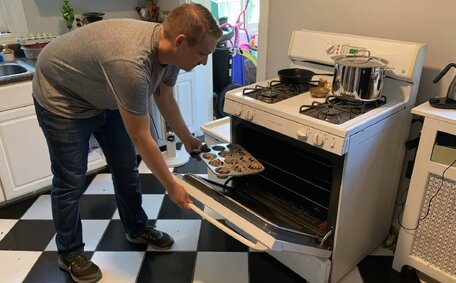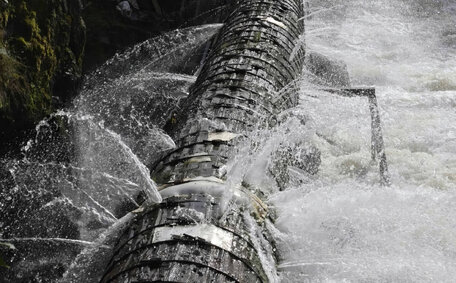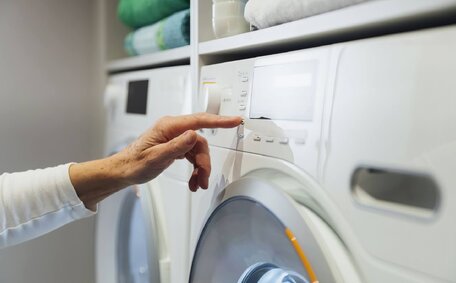Introduction to Essential Plumbing Tools for Emergencies
In the event of a dreaded emergency plumbing situation in your home, having the appropriate tools on hand is crucial.
Emergency plumbing tools are essential for quick action to mitigate water damage or other problems, such as burst pipes or toilet overflows. As a homeowner, it’s wise to assemble a plumbing emergency kit with tools suitable for all types of minor repairs and to stabilise issues until your plumber arrives.
This guide will explore the vital tools for any household’s emergency plumbing kit, including the critical drain snake.
Equipping yourself with the right tools so you can use them effectively means you’ll be prepared when plumbing system issues arise, whether it’s drain cleaning or more. Read on as we uncover the versatile, handy tools emergency plumbers rely on to tackle all kinds of residential plumbing crises.
Varieties of Plungers and Their Key Applications
Different types of plungers, specifically designed for distinct clog scenarios, include cup and flange plungers, each tailored for effective use in their respective applications.
Cup Plungers
Cup plungers, which generate a strong suction force, consist of a soft rubber cup affixed to a handle. You can apply a pump-like motion to help loosen and dislodge clogs. Cup plungers work best for sink, tub, and shower drains.
Flange Plungers
Flange plungers, also referred to as toilet plungers, have a large rubber cup with a funnel-like protrusion from the bottom. This tapered flange, positioned just below the cup, fits securely into toilet drains to break up clogs. The flange plunger’s design includes a secure seal that ensures maximum suction power during the plunging process.
While a standard cup plunger may work in a pinch, flange plungers are important plumbing tools designed to provide maximum force. The funnel-shaped flange on toilet plungers is critical for creating a strong seal to prevent air leakage and maximise suction.
Choosing the Right Plunger
When faced with a clogged drain, select a plunger style suiting the specific type of pipe configuration:
- For blocked drains in your sink, tub, and shower, start with a standard cup plunger.
- For toilets, always use a flanged plunger if possible for better leverage.
Including both a cup plunger and a toilet plunger in your plumbing toolkit equips you to handle various clog situations rapidly.
Common Wrenches Used by Plumbers
The assortment of wrenches, each a wrench used extensively by plumbers, is crucial to complete a broad array of tasks. Two of the most ubiquitous wrenches found in a plumber’s toolkit are pipe wrenches and basin wrenches, both crucial for different tasks.
Pipe Wrenches
Pipe wrenches are versatile tools with adjustable hardened steel jaws that strongly grip cylindrical objects like pipes. An adjustable wrench’s ability to tighten its grip with increased force makes it indispensable in any set of tools.
A pipe wrench is vital for a multitude of plumbing tasks, particularly when assembling or disassembling pipework. Common plumbing work includes installing pipes, sealing threaded joints with pipe sealant, and attaching valves and pipe fittings. When cranking down tight connections, it’s best to employ a dependable pipe wrench for optimal leverage.
Basin Wrenches
The basin wrench is crucial for plumbing repairs in tight spaces, such as under sinks, due to its extended reach. This design allows for reaching behind the basin to tighten or loosen nuts and bolts.
Groove pliers and their adjustable heads offer flexibility to fit nuts and bolts of different sizes, securing a snug fit. The wrench head extends along a long handle at an L-shaped angle.
While perhaps not as robust as pipe wrenches, the wrench designed as a basin wrench, acting as an adjustable wrench, prevents damage to delicate fixtures and still provides sufficient torque. Plumbers typically use basin wrenches whenever servicing bathroom and kitchen faucets and related supply line hardware.
Having the right wrenches in your toolkit is essential for conducting plumbing repairs safely and efficiently, minimising damage risk.
The Importance of Pipe Cutters
Pipe cutters, critical for cutting pipes accurately, are a staple in every plumber’s toolkit. They offer a quick and accurate method for cutting or removing sections of metal and plastic pipes. Professional-grade pipe cutters, tools used for precision, similar to a water pump in reliability, create clean, straight cuts, which ensures watertight joints and minimises leaks.
Specialised pipe cutters are available, suited for the material and size of pipes typically encountered in home repairs. Common types found inside a plumber’s toolkit include:
- Tubing cutters, which are specifically designed for cutting through copper pipes, brass, and thin plastic piping
- Plastic tube cutters for PVC, CPVC, PE and rubber hoses
- Ratcheting plastic cutters, which can be used for ABS, PVC up to 2-5/8″
- Chain pipe cutters for thick plastic, iron, and steel pipes
Ratcheting cutters are especially useful for emergency pipe repairs in confined spaces, providing homeowners with a versatile tool option. They attach directly to the pipe and cut through the material when you twist their handle. This provides control while cutting pipes already installed.
Proper use of pipe cutters is indispensable for making uniform cuts without harming the pipe. The blade must fully penetrate the pipe’s thickness while keeping the cut straight. Burrs left inside can obstruct water flow.
While homeowners may improvise with hacksaws for occasional projects, pipe cutters are indispensable for professional plumbers regularly working with cutting pipes to exact lengths and widths.
Additional Tools for Specific Plumbing Tasks
Plumbers rely on several specialised tools to complete certain repairs and installations.
Faucet Keys
Faucet keys, an underrated plumbing tool, are used to easily remove and install faucet valves. They fit securely around faucet nuts and valves to provide good torque for loosening or tightening.
Plumber’s Tape
PTFE tape is critical for creating a watertight seal when wrapped around threaded pipe joints. It prevents leaks by filling any small gaps between the threads. Teflon tape proves useful when assembling any threaded plumbing connection, such as screwing pipes into elbows, tees, and valves.
Metal Files
A fine metal file, essential for ensuring smooth edges, deburrs the inside of freshly cut pipes to guarantee secure fittings. Removing burrs ensures unobstructed water flow and allows fittings to seal correctly onto pipes.
Caulking Guns
A caulking gun, easily found at your local hardware store, assists in sealing openings and preventing leaks around fixtures like sinks and tubs with precision application. To fix a leak, a caulking gun delivers steady, controlled flow, efficiently filling joints and gaps with pliable caulking material.
Plumbing tools keep on hand, particularly speciality items like these, enables plumbers to handle faucet repair, pipe assembly, and leak sealing with professional results.
When DIY Plumbing Repairs Are Possible
Certain repairs are within homeowners’ capabilities using basic tools, including plungers and wrenches.
Drain Clogs
Consider using a drain auger, also known as a toilet auger, to efficiently and precisely clear toilet blockages. Flange plungers are specifically designed for effectively unclogging toilets. Repeated plunging should break up minor clogs so water flows freely.
Leaks
You can stop small leaks in faucets and showerheads using faucet keys to disassemble the fixture and replace worn washers and O-rings with matching spare parts.
Noisy Pipes
It’s best practice to secure loose pipes with braces or hooks to stop rattling noises. Use pipe insulation around exposed hot water and plastic pipes to reduce expansion noises.
Tackling plumbing problems like complex repairs involving main sewer lines should be entrusted to an emergency plumber.
Understanding your limitations is vital to avoid exacerbating the issue. Our team, inclusive of a licensed plumber, has the expertise to diagnose problems and safely restore your plumbing system.
Knowing When to Call a Professional Plumber
Homeowners need to recognise when a plumbing problem is beyond their DIY capabilities, necessitating professional assistance. Attempting complex repairs without proper expertise can result in costlier damage or risky situations.
For complex issues, engaging our team of licensed plumbers is the prudent choice:
- Gas line leaks - Never take risks with gas yourself. Any suspected gas leaks require immediate, expert attention to prevent explosion hazards.
- Main sewer line clogs - Significant drain backups, suitable for a hand auger, involving main pipes may indicate damage needing replacement.
- Water heater repairs - From pilot light issues to faulty valves, it takes specialised knowledge to service hot water systems safely.
- Electrical malfunctions - If a plumbing problem involves electrical controls or connects to appliances, let a qualified plumber handle it.
Erskine Park Plumbing has extensive experience with a range of residential plumbing emergencies. Our fully-equipped plumbers have all the tools needed to respond swiftly to diagnose issues and restore your plumbing system to proper operation.
Instead of risking further complications by guessing at complex repairs, call experienced professionals to handle the problem promptly. Call our emergency hotline at 1300 349 338 for urgent assistance or email us to schedule non-emergency appointments.
With our specialised tools and extensive experience, we are adept at managing any emergency in the plumbing realm with the right tools and skills.
Contact [Business Name] for All Your Plumbing Needs
When plumbing emergencies strike or you need any kind of repair or installation for your home’s plumbing system, trust the experienced team at Erskine Park Plumbing. Our team is highly trained and ready with used plumbing expertise to handle a wide spectrum of your needs promptly and without risk.
Our extensive range of speciality tools is adept at addressing issues from clearing drain blockages to repairing leaky pipes. Whether it’s a middle-of-the-night flooding crisis or scheduled maintenance appointments, you can rely on us to get your plumbing back in working order.
Contact us today to learn more about our comprehensive residential and commercial plumbing services:
With over 16 years serving Erskine Park and Sydney, our team is adept at tackling any plumbing challenge, regardless of its size. We have the reliable tools and qualified experience to fix any plumbing issue quickly and safely, avoiding costly water damage or disruption.
Contact us today for superior assistance with all your plumbing requirements.






